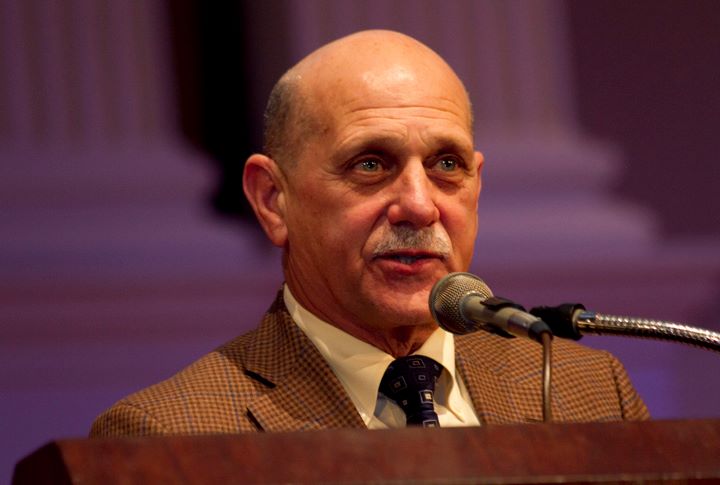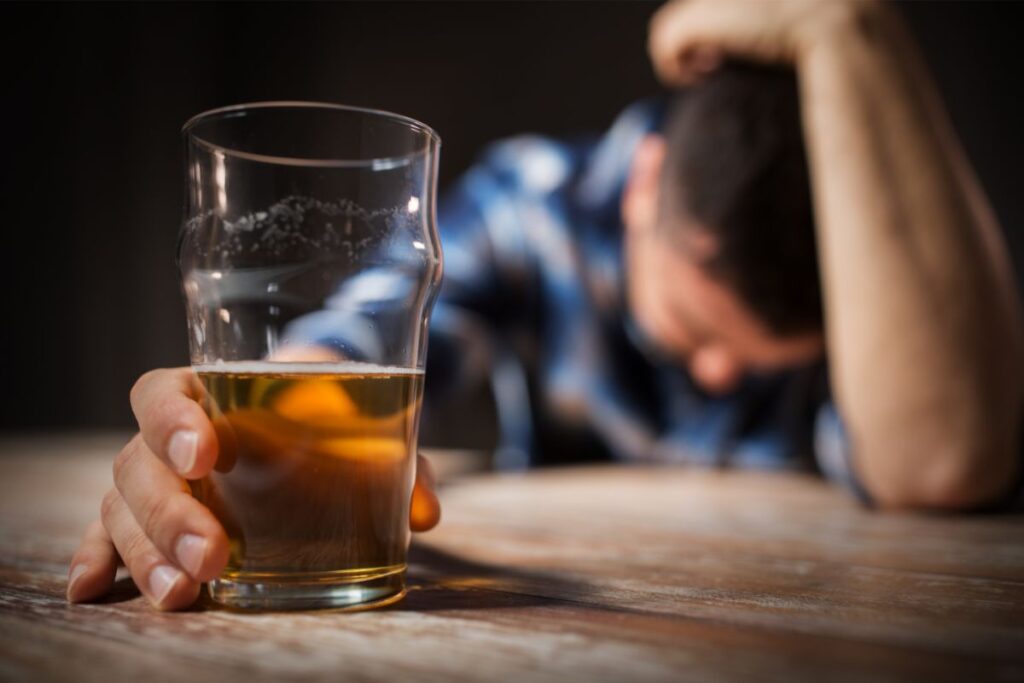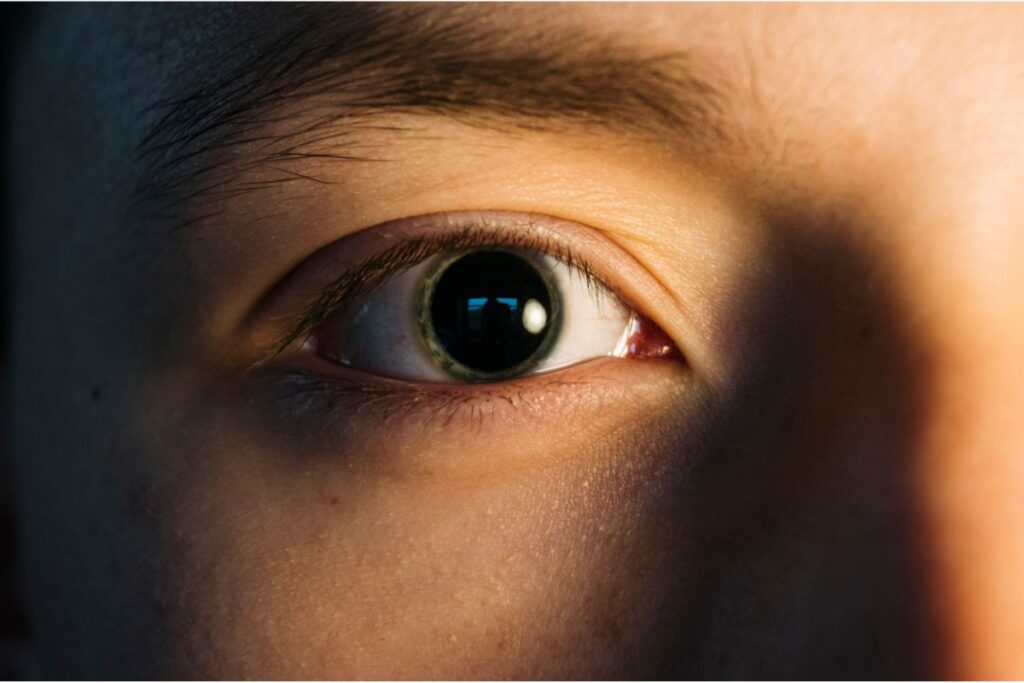Home » Withdrawal Guide
Withdrawal Symptoms & Timelines
Withdrawal Guide
Withdrawal symptoms can range in severity from mildly distressing to dangerous—and potentially deadly. Our withdrawal guide will help you understand the symptoms and timelines of the withdrawal process before you begin drug and alcohol rehab.
Contact Lake Avenue Recovery today to learn more.
Home » Withdrawal Guide
Withdrawal Symptoms & Timelines
Withdrawal Guide
Withdrawal symptoms can range in severity from mildly distressing to dangerous—and potentially deadly. Our withdrawal guide will help you understand the symptoms and timelines of the withdrawal process before you begin drug and alcohol rehab.
Contact Lake Avenue Recovery today to learn more.

Withdrawal is one of the most difficult and intimidating aspects of recovery. For many, the fear of painful symptoms or not knowing what to expect can make taking the first step feel impossible. At Lake Avenue Recovery, we believe that understanding withdrawal symptoms & timelines can empower people to move forward with confidence. By breaking down what withdrawal looks like across different substances and explaining how our Massachusetts programs can help, we aim to remove some of the fear and uncertainty surrounding the process.
Whether you are struggling with alcohol, opioids, cocaine, or other substances, our team is available to provide compassionate, evidence-based care every step of the way. Visit our admissions page or call us today at (508) 794-4400 to get started.
What is Withdrawal?
Withdrawal is the body’s natural response to suddenly reducing or stopping the use of a substance it has become dependent on. Over time, the brain and body adapt to the presence of drugs or alcohol. When that substance is taken away, the system struggles to regain balance. This results in withdrawal symptoms that can range from mild discomfort to life-threatening complications.
Symptoms and severity vary based on:
- The type of substance used
- How long and how heavily it was used
- Individual factors such as overall health, age, and genetics
While withdrawal is temporary, it can feel overwhelming without proper support. Understanding what’s happening in the body helps to normalize the experience and highlight why professional care matters.
How Long Do Drug Withdrawal Symptoms Last?
Withdrawal symptoms & timelines differ for every substance, but most follow a general pattern: an initial onset within hours to a day, peak discomfort within the first few days, and gradual improvement over one to two weeks. Some drugs, however, can cause lingering psychological or physical symptoms that last for months.
Drug and alcohol detox programs in Massachusetts can help you safely overcome withdrawal symptoms, and we’ll connect you to detox facilities in the area so you can start your recovery. That way, you’re less likely to develop severe symptoms and will recover sooner. In addition, detox programs help you stay drug-free and prevent relapses, which is common during early recovery from drugs like opioids, stimulants, alcohol, and others.
Below is a synopsis of common withdrawal experiences:
Alcohol Withdrawal
Symptoms: Anxiety, shaking, sweating, nausea, insomnia, irritability, rapid heartbeat. Severe cases can lead to seizures or delirium tremens (DTs), which require immediate medical attention.
- Onset: 6–12 hours after the last drink
- Peak: 24–72 hours
- Duration: 5–7 days, sometimes longer
Recommended: Alcohol Detox in Massachusetts
Heroin Withdrawal
Symptoms: Flu-like discomfort including runny nose, body aches, chills, restlessness, diarrhea, vomiting, and intense cravings.
- Onset: 6–12 hours after last use
- Peak: 2–3 days
- Duration: 5–10 days
Recommended: Heroin Detox in Massachusetts
Fentanyl Withdrawal
Symptoms: Severe muscle pain, insomnia, agitation, nausea, sweating, and intense cravings. Because fentanyl is stronger and longer-lasting than heroin, symptoms are often more intense.
- Onset: 8–24 hours after last dose
- Peak: 2–4 days
- Duration: 7–14 days, with cravings persisting longer
Cocaine Withdrawal
Symptoms: Fatigue, irritability, depression, difficulty concentrating, vivid dreams, and intense cravings. Physical symptoms are less severe than opioids but the psychological toll can be profound.
- Onset: Within hours of last use
- Peak: 1–3 days
- Duration: 1–2 weeks, though depression and cravings may linger
Recommended: Cocaine Detox in Massachusetts
Benzodiazepine (Benzo) Withdrawal
Symptoms: Anxiety, insomnia, muscle tension, agitation, panic attacks, and, in severe cases, seizures. Benzo withdrawal is particularly dangerous and should only be managed under medical supervision.
- Onset: 1–4 days (depending on the drug’s half-life)
- Peak: 1–2 weeks
- Duration: Several weeks to months in some cases
Marijuana Withdrawal
Symptoms: Irritability, insomnia, decreased appetite, anxiety, and restlessness. While not life-threatening, the psychological discomfort can be challenging.
- Onset: 1–3 days after last use
- Peak: 2–6 days
- Duration: 1–2 weeks
Recommended: Marijuana Detox in Massachusetts
Kratom Withdrawal
Symptoms: Muscle aches, insomnia, mood swings, nausea, irritability, and cravings. Severity can vary depending on the amount and frequency of use.
- Onset: 6–12 hours after last use
- Peak: 2–3 days
- Duration: 5–10 days
The Relationship Between Dependency and Withdrawal
Dependency and withdrawal are closely connected. When the brain adapts to regular substance use, it begins to rely on the drug or alcohol to function “normally.” This creates a cycle where stopping use feels almost impossible because of the painful withdrawal symptoms that follow.
Understanding this connection is key: withdrawal isn’t a sign of weakness, but rather evidence of the body’s remarkable ability to adapt. With the right treatment and support, it is possible to break free from this cycle and begin a sustainable recovery.
You are not alone. You deserve to get help.
Lake Avenue Recovery is an industry leader in addiction treatment in Massachusetts. Our team of top medical experts specialize in dual diagnosis treatment and are committed to ensuring that each patient is treated as an individual. Call us today, we’re available 24/7.
Our Programs That Help With Withdrawal Symptoms
At Lake Avenue Recovery, we recognize that each person’s experience with withdrawal is unique. That’s why our Massachusetts programs provide multiple levels of care to meet clients where they are in their healing process. While we are not a medical detox facility, our clinical team can help individuals manage withdrawal symptoms & timelines safely through structured outpatient care and ongoing support.
- High-Intensity Outpatient Treatment: This program provides a structured schedule of therapy and clinical oversight, ideal for those in the early stages of recovery or facing more severe withdrawal-related challenges. Clients receive consistent support while returning home each day.
- Intensive Outpatient Program (IOP): A step down in intensity, IOP offers a balance of therapeutic services and flexibility. Clients attend several sessions per week, focusing on relapse prevention, coping strategies, and emotional support while still maintaining their responsibilities outside treatment.
- Outpatient Program (OP): Designed for those further along in recovery, OP provides continued therapy and guidance with a lighter schedule. This level of care helps clients solidify their foundation in recovery while managing life’s demands.
Therapies Offered
To help clients manage both the physical and emotional challenges of withdrawal, Lake Avenue Recovery provides a comprehensive range of evidence-based and holistic therapies. Each therapy is designed not only to reduce discomfort during withdrawal symptoms & timelines, but also to build long-term resilience and healthier coping strategies.
By blending traditional therapies with innovative holistic practices, we ensure that every client has the tools they need to navigate withdrawal and build a lasting foundation for recovery. Our integrated approach acknowledges that healing is not one-dimensional—it requires care for the body, mind, and spirit.
- Adventure Therapy – Outdoor and experiential activities give teens and adults the chance to connect with nature, challenge themselves in new ways, and develop trust, teamwork, and confidence that can carry over into recovery.
- Exercise Program – Structured physical activity helps restore balance to the body and mind. Exercise is proven to reduce cravings, improve mood, and relieve stress, all of which are crucial during withdrawal and early sobriety.
- Trauma Therapy – Many who struggle with addiction have also faced trauma. Specialized trauma therapy helps individuals process difficult experiences safely, reducing the risk of relapse by addressing the root causes of substance use.
- Individual Therapy – One-on-one sessions with a trained therapist provide a confidential space to explore emotions, triggers, and goals for recovery. These sessions are tailored to each client’s unique needs.
- Group Therapy – Recovery thrives in community. Group therapy sessions allow individuals to connect with peers, share experiences, and build a strong network of support.
- Holistic Therapy – Mind-body healing approaches, such as yoga, mindfulness, and meditation, encourage self-awareness and calm during periods of stress or discomfort. These therapies complement clinical methods and strengthen emotional resilience.
- Acupuncture – A traditional practice shown to reduce cravings, calm the nervous system, and ease withdrawal symptoms such as anxiety, insomnia, and muscle tension.
- Cognitive Behavioral Therapy (CBT) – CBT helps clients identify harmful thought patterns and replace them with healthier, more constructive ways of thinking and responding to stress.
- Dialectical Behavior Therapy (DBT) – DBT emphasizes emotional regulation, distress tolerance, and interpersonal effectiveness. This is especially helpful for those who struggle with intense emotions during withdrawal and recovery.
- Aftercare Planning – Recovery doesn’t end when treatment does. Our team works with each client to create a personalized aftercare plan that supports ongoing sobriety and prevents relapse long after formal treatment has ended.
Take the First Step Today
If you or a loved one is struggling with substance use, don’t let the fear of withdrawal hold you back from getting help. At Lake Avenue Recovery, we understand the courage it takes to face withdrawal symptoms & timelines, and we are here to walk beside you every step of the way.
Recovery is possible—and it starts with one decision. Contact Lake Avenue Recovery today to learn more about our outpatient programs in Massachusetts and begin your journey toward healing.
Worcester, MA
Our Worcester, MA location provides evidence-based treatment modalities, our luxury facility strives to create the most peaceful atmosphere to help our patients recover in the best way.
Withdrawal is one of the most difficult and intimidating aspects of recovery. For many, the fear of painful symptoms or not knowing what to expect can make taking the first step feel impossible. At Lake Avenue Recovery, we believe that understanding withdrawal symptoms & timelines can empower people to move forward with confidence. By breaking down what withdrawal looks like across different substances and explaining how our Massachusetts programs can help, we aim to remove some of the fear and uncertainty surrounding the process.
Whether you are struggling with alcohol, opioids, cocaine, or other substances, our team is available to provide compassionate, evidence-based care every step of the way. Visit our admissions page or call us today at (508) 794-4400 to get started.
What is Withdrawal?
Withdrawal is the body’s natural response to suddenly reducing or stopping the use of a substance it has become dependent on. Over time, the brain and body adapt to the presence of drugs or alcohol. When that substance is taken away, the system struggles to regain balance. This results in withdrawal symptoms that can range from mild discomfort to life-threatening complications.
Symptoms and severity vary based on:
- The type of substance used
- How long and how heavily it was used
- Individual factors such as overall health, age, and genetics
While withdrawal is temporary, it can feel overwhelming without proper support. Understanding what’s happening in the body helps to normalize the experience and highlight why professional care matters.
How Long Do Drug Withdrawal Symptoms Last?
Withdrawal symptoms & timelines differ for every substance, but most follow a general pattern: an initial onset within hours to a day, peak discomfort within the first few days, and gradual improvement over one to two weeks. Some drugs, however, can cause lingering psychological or physical symptoms that last for months.
Drug and alcohol detox programs in Massachusetts can help you safely overcome withdrawal symptoms, and we’ll connect you to detox facilities in the area so you can start your recovery. That way, you’re less likely to develop severe symptoms and will recover sooner. In addition, detox programs help you stay drug-free and prevent relapses, which is common during early recovery from drugs like opioids, stimulants, alcohol, and others.
Below is a synopsis of common withdrawal experiences:
Alcohol Withdrawal
Symptoms: Anxiety, shaking, sweating, nausea, insomnia, irritability, rapid heartbeat. Severe cases can lead to seizures or delirium tremens (DTs), which require immediate medical attention.
- Onset: 6–12 hours after the last drink
- Peak: 24–72 hours
- Duration: 5–7 days, sometimes longer
Recommended: Alcohol Detox in Massachusetts
Heroin Withdrawal
Symptoms: Flu-like discomfort including runny nose, body aches, chills, restlessness, diarrhea, vomiting, and intense cravings.
- Onset: 6–12 hours after last use
- Peak: 2–3 days
- Duration: 5–10 days
Fentanyl Withdrawal
Symptoms: Severe muscle pain, insomnia, agitation, nausea, sweating, and intense cravings. Because fentanyl is stronger and longer-lasting than heroin, symptoms are often more intense.
- Onset: 8–24 hours after last dose
- Peak: 2–4 days
- Duration: 7–14 days, with cravings persisting longer
Cocaine Withdrawal
Symptoms: Fatigue, irritability, depression, difficulty concentrating, vivid dreams, and intense cravings. Physical symptoms are less severe than opioids but the psychological toll can be profound.
- Onset: Within hours of last use
- Peak: 1–3 days
- Duration: 1–2 weeks, though depression and cravings may linger
Recommended: Cocaine Detox in Massachusetts
Benzodiazepine (Benzo) Withdrawal
Symptoms: Anxiety, insomnia, muscle tension, agitation, panic attacks, and, in severe cases, seizures. Benzo withdrawal is particularly dangerous and should only be managed under medical supervision.
- Onset: 1–4 days (depending on the drug’s half-life)
- Peak: 1–2 weeks
- Duration: Several weeks to months in some cases
Marijuana Withdrawal
Symptoms: Irritability, insomnia, decreased appetite, anxiety, and restlessness. While not life-threatening, the psychological discomfort can be challenging.
- Onset: 1–3 days after last use
- Peak: 2–6 days
- Duration: 1–2 weeks
Kratom Withdrawal
Symptoms: Muscle aches, insomnia, mood swings, nausea, irritability, and cravings. Severity can vary depending on the amount and frequency of use.
- Onset: 6–12 hours after last use
- Peak: 2–3 days
- Duration: 5–10 days
The Relationship Between Dependency and Withdrawal
Dependency and withdrawal are closely connected. When the brain adapts to regular substance use, it begins to rely on the drug or alcohol to function “normally.” This creates a cycle where stopping use feels almost impossible because of the painful withdrawal symptoms that follow.
Understanding this connection is key: withdrawal isn’t a sign of weakness, but rather evidence of the body’s remarkable ability to adapt. With the right treatment and support, it is possible to break free from this cycle and begin a sustainable recovery.
You are not alone. You deserve to get help.
Lake Avenue Recovery is an industry leader in addiction treatment in Massachusetts. Our team of top medical experts specialize in dual diagnosis treatment and are committed to ensuring that each patient is treated as an individual. Call us today, we’re available 24/7.
Our Programs That Help With Withdrawal Symptoms
At Lake Avenue Recovery, we recognize that each person’s experience with withdrawal is unique. That’s why our Massachusetts programs provide multiple levels of care to meet clients where they are in their healing process. While we are not a medical detox facility, our clinical team can help individuals manage withdrawal symptoms & timelines safely through structured outpatient care and ongoing support.
- High-Intensity Outpatient Treatment: This program provides a structured schedule of therapy and clinical oversight, ideal for those in the early stages of recovery or facing more severe withdrawal-related challenges. Clients receive consistent support while returning home each day.
- Intensive Outpatient Program (IOP): A step down in intensity, IOP offers a balance of therapeutic services and flexibility. Clients attend several sessions per week, focusing on relapse prevention, coping strategies, and emotional support while still maintaining their responsibilities outside treatment.
- Outpatient Program (OP): Designed for those further along in recovery, OP provides continued therapy and guidance with a lighter schedule. This level of care helps clients solidify their foundation in recovery while managing life’s demands.
Therapies Offered
To help clients manage both the physical and emotional challenges of withdrawal, Lake Avenue Recovery provides a comprehensive range of evidence-based and holistic therapies. Each therapy is designed not only to reduce discomfort during withdrawal symptoms & timelines, but also to build long-term resilience and healthier coping strategies.
By blending traditional therapies with innovative holistic practices, we ensure that every client has the tools they need to navigate withdrawal and build a lasting foundation for recovery. Our integrated approach acknowledges that healing is not one-dimensional—it requires care for the body, mind, and spirit.
- Adventure Therapy – Outdoor and experiential activities give teens and adults the chance to connect with nature, challenge themselves in new ways, and develop trust, teamwork, and confidence that can carry over into recovery.
- Exercise Program – Structured physical activity helps restore balance to the body and mind. Exercise is proven to reduce cravings, improve mood, and relieve stress, all of which are crucial during withdrawal and early sobriety.
- Trauma Therapy – Many who struggle with addiction have also faced trauma. Specialized trauma therapy helps individuals process difficult experiences safely, reducing the risk of relapse by addressing the root causes of substance use.
- Individual Therapy – One-on-one sessions with a trained therapist provide a confidential space to explore emotions, triggers, and goals for recovery. These sessions are tailored to each client’s unique needs.
- Group Therapy – Recovery thrives in community. Group therapy sessions allow individuals to connect with peers, share experiences, and build a strong network of support.
- Holistic Therapy – Mind-body healing approaches, such as yoga, mindfulness, and meditation, encourage self-awareness and calm during periods of stress or discomfort. These therapies complement clinical methods and strengthen emotional resilience.
- Acupuncture – A traditional practice shown to reduce cravings, calm the nervous system, and ease withdrawal symptoms such as anxiety, insomnia, and muscle tension.
- Cognitive Behavioral Therapy (CBT) – CBT helps clients identify harmful thought patterns and replace them with healthier, more constructive ways of thinking and responding to stress.
- Dialectical Behavior Therapy (DBT) – DBT emphasizes emotional regulation, distress tolerance, and interpersonal effectiveness. This is especially helpful for those who struggle with intense emotions during withdrawal and recovery.
- Aftercare Planning – Recovery doesn’t end when treatment does. Our team works with each client to create a personalized aftercare plan that supports ongoing sobriety and prevents relapse long after formal treatment has ended.
Take the First Step Today
If you or a loved one is struggling with substance use, don’t let the fear of withdrawal hold you back from getting help. At Lake Avenue Recovery, we understand the courage it takes to face withdrawal symptoms & timelines, and we are here to walk beside you every step of the way.
Recovery is possible—and it starts with one decision. Contact Lake Avenue Recovery today to learn more about our outpatient programs in Massachusetts and begin your journey toward healing.
Worcester, MA
Our Worcester, MA location provides evidence-based treatment modalities, our luxury facility strives to create the most peaceful atmosphere to help our patients recover in the best way.
Learn more About our Treatment Options
What Is Precipitated Withdrawal?
What is precipitated withdrawal? Is it more dangerous or otherwise significantly different...
Detox Vs. Rehab (Which One Is Right for You?)
When you or a loved one finally decides to seek help for...
Honoring Advocacy & Awareness: Dr. James DiReda Speaks at AIDS Project Worcester’s World AIDS Day Event
Lake Ave Recovery is proud to highlight the meaningful work of our...
Alcoholism and Brain Fog: Symptoms and Treatment
Many people notice that after drinking—whether it’s a night out or long-term...
How Does Cocaine Affect the Eyes?
When people talk about the physical signs of cocaine use, one of...
How Does Outpatient Alcohol Rehab Work?
Starting alcohol recovery can feel overwhelming, especially when you’re trying to balance...
Instant Insurance Verification
Same-Day Clinical Assessment
Free &
Confidential
Start Your Journey to Recovery Call Now.
We have a longstanding foundation in the treatment and recovery community
Lake Avenue Recovery is a state licensed and Joint Commission accredited organization committed to promoting, maintaining, and restoring the dignity, well-being and mental health for those with substance use disorders and their families serving greater Worcester county and beyond.
- 132 Years Clinical Excellence
- 105 Years Recovery Experience
- 8:1 Ratio Client to Staff
- 12 Publications on Alcohol and Drug Use






